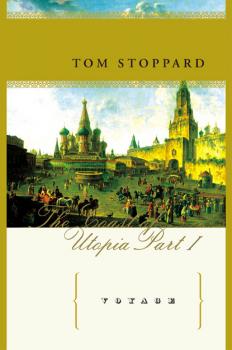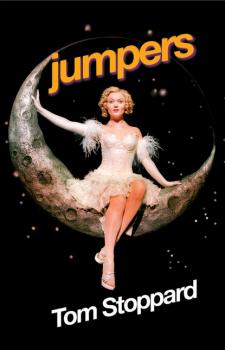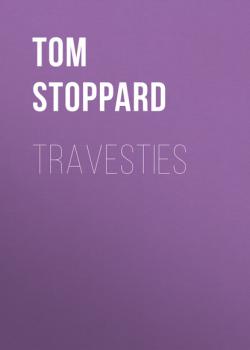Tom Stoppard
Скачать книги из серии Tom StoppardVoyage
Comprising of three sequential plays, The Coast of Utopia chronicles the story of romantics and revolutionaries caught up in a struggle for political freedom in an age of emperors.The Coast of Utopia is Tom Stoppard’s long-awaited and monumental trilogy that explores a group of friends who come of age under the Tsarist autocracy of Nicholas I, and for whom the term “intelligentsia” was coined. Among them are the anarchist Michael Bakunin, who was to challenge Marx for the soul of the masses; Ivan Turgenev, author of some of the most enduring works in Russian literature; the brilliant, erratic young critic Vissarion Belinsky; and Alexander Herzen, a nobleman's son and the first self-proclaimed socialist in Russia, who becomes the main focus of this drama of politics, love, loss and betrayal. In The Coast of Utopia, Stoppard presents an inspired examination of the struggle between romantic anarchy, utopian idealism and practical reformation in what The New York Times calls, “The biggest theatrical event of the year. . . . Brilliant, sprawling. . . . A rich pageant.”
Jumpers
Tom Stoppers's play «Jumpers» is both a high-spirited comedy and a serious attempt to debate the existence of a moral absolute, of metaphysical reality, of God. Michael Billington in «The Guardian» described the play succinctly: «The new Radical Liberal Party has made the ex-Minister of Agriculture Archbishop of Cantebury, British astronauts are scrapping with each other on the moon, and spritely academics steal about London by night indulging in murderous gymnastics: this is the kind of manic, futuristic, topsy-turvy world in which Stoppard's dazzling new play is set. And if I add that the influences apparently include Wittgenstein, Magritte, the Goons, Robert Dhery, Joe Orton, and The Avengers, you will have some idea of the heady brew Stoppard has here concocted.» The protagonist incude an aging Professor Of Moral Philosophy – trying to compose a lecture on «Man – Good, Bad or Indifferent» – while ignoring a corpse in the next room; his beautiful young wife, an ex-musical comedy Queen, lasciviously entertaining his university boss down the hall; her husband's specially trained hare, Thumpers; and a chorus of gymnasts, Jumpers.
Travesties
"Travesties" was born out of Stoppard's noting that in 1917 three of the twentieth century's most crucial revolutionaries – James Joyce, the Dadaist founder Tristan Tzara, and Lenin – were all living in Zurich. Also living in Zurich at this time was a British consula official called Henry Carr, a man acquainted with Joyce through the theater and later through a lawsuit concerning a pair of trousers. Taking Carr as his core, Stoppard spins this historical coincidence into a masterful and riotously funny play, a speculative portrait of what could have been the meeting of these profoundly influential men in a germinal Europe as seen through the lucid, lurid, faulty, and wholly riveting memory of an aging Henry Carr.
Shipwreck
The Coast of Utopia is Tom Stoppard’s long-awaited and monumental trilogy that explores a group of friends who come of age under the Tsarist autocracy of Nicholas I, and for whom the term “intelligentsia” was coined. Among them are the anarchist Michael Bakunin, who was to challenge Marx for the soul of the masses; Ivan Turgenev, author of some of the most enduring works in Russian literature; the brilliant, erratic young critic Vissarion Belinsky; and Alexander Herzen, a nobleman's son and the first self-proclaimed socialist in Russia, who becomes the main focus of this drama of politics, love, loss and betrayal. In The Coast of Utopia, Stoppard presents an inspired examination of the struggle between romantic anarchy, utopian idealism and practical reformation in what The New York Times calls, “The biggest theatrical event of the year. . . . Brilliant, sprawling. . . . A rich pageant.”
The Real Inspector Hound and Other Plays
Culled from nearly twenty years of the playwright’s career, a showcase for Tom Stoppard’s dazzling range and virtuosic talent, The Real Inspector Hound and Other Plays is essential reading for fans of modern drama. The plays in this collection reveal Stoppard’s sense of fun, his sense of theater, his sense of the absurd, and his gifts for parody and satire.Includes:“The Real Inspector Hound”“After Margritte”“Dirty Linen”“New-Found-Land”“Dogg’s Hamlet”“Cahoot’s Macbeth”
Rosencrantz and Guildenstern Are Dead
Acclaimed as a modern dramatic masterpiece, Rosencrantz & Guildenstern are Dead is the fabulously inventive tale of Hamlet as told from the worm’s-eve view of the bewildered Rosencrantz and Guildenstern, two minor characters in Shakespeare’s play. In Tom Stoppard’s best-known work, this Shakespearean Laurel and Hardy finally get a chance to take the lead role, but do so in a world where echoes of Waiting for Godot resound, where reality and illusion intermix, and where fate leads our two heroes to a tragic but inevitable end.Tom Stoppard was catapulted into the front ranks of modem playwrights overnight when Rosencrantz and Guildenstern Are Dead opened in London in 1967. Its subsequent run in New York brought it the same enthusiastic acclaim, and the play has since been performed numerous times in the major theatrical centers of the world. It has won top honors for play and playwright in a poll of London Theater critics, and in its printed form it was chosen one of the “Notable Books of 1967” by the American Library Association.





